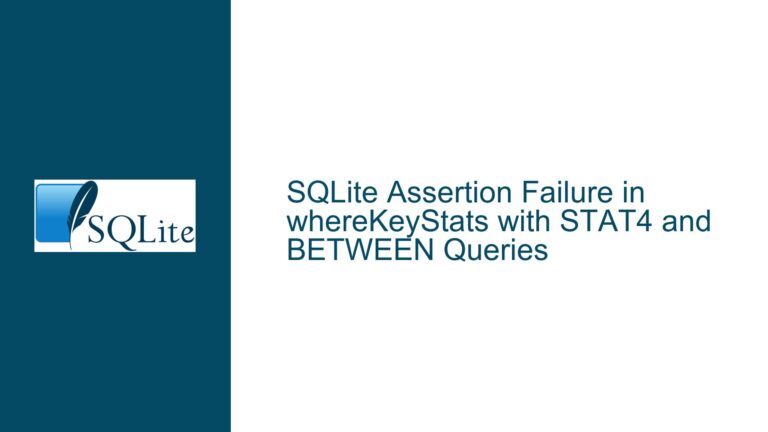Efficiently Managing Rank Updates in Large SQLite Datasets
Frequent Rank Updates in Large Datasets Leading to Performance Bottlenecks When dealing with large datasets in SQLite, particularly those requiring frequent updates to item ranks, performance bottlenecks can quickly become a significant issue. The core problem arises when the dataset contains a large number of items, each assigned a unique and continuous rank. These ranks…









